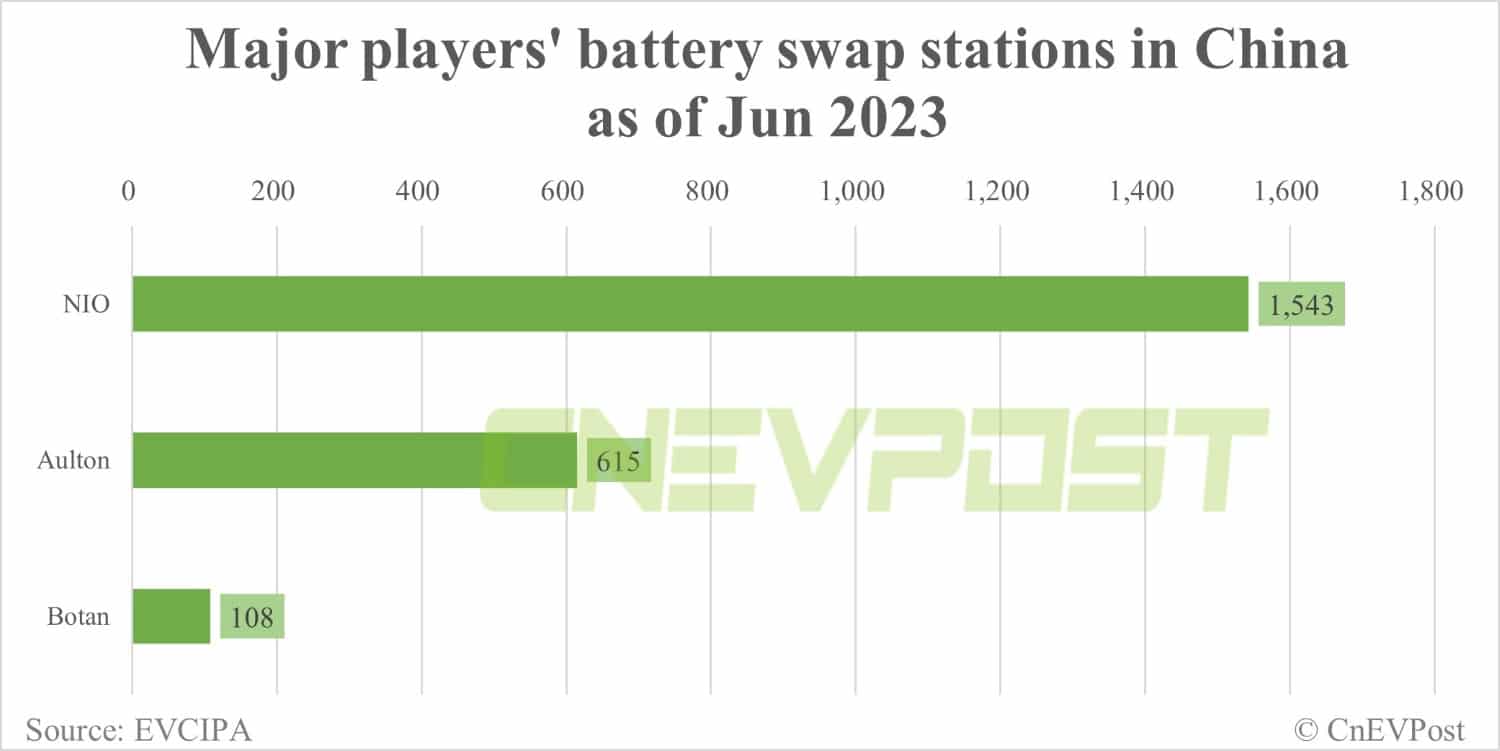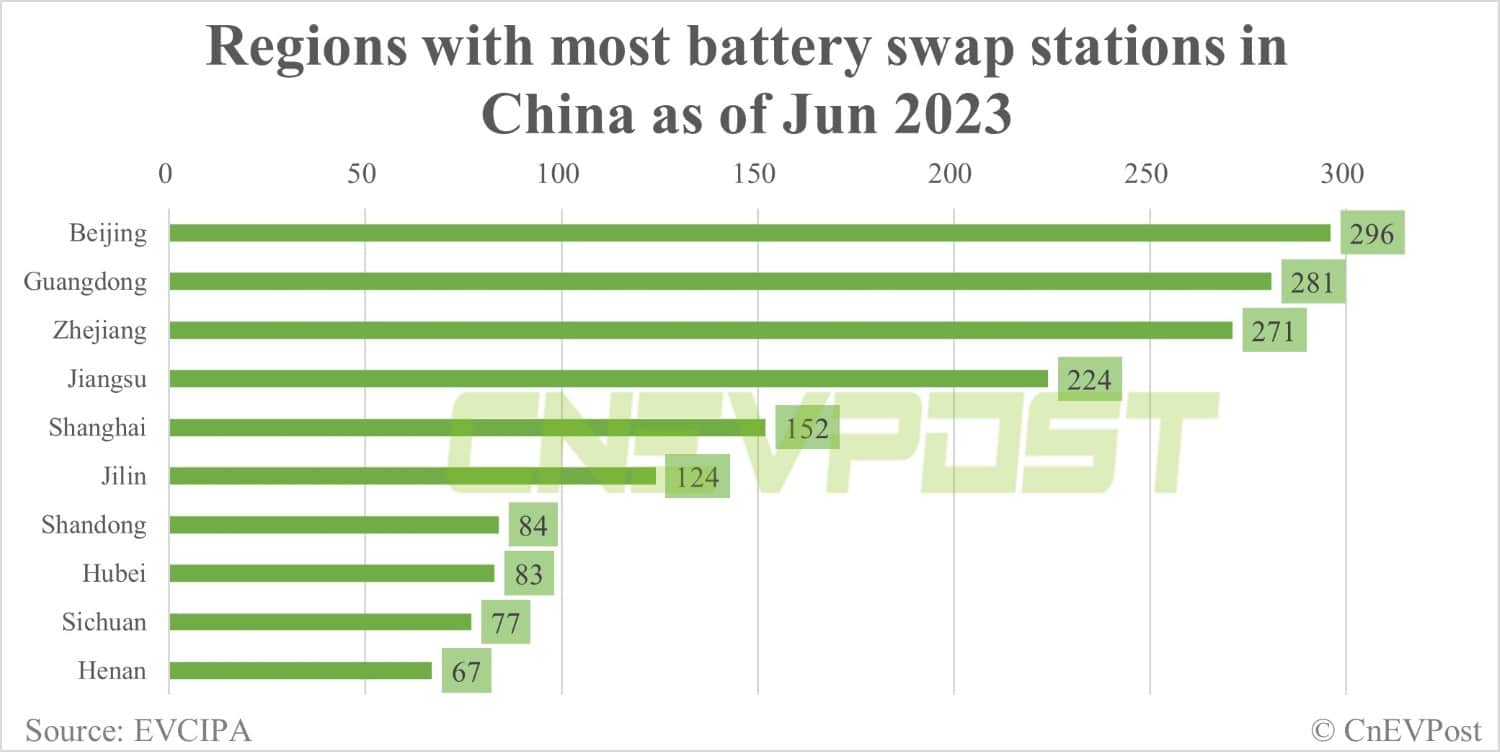Nio, Aulton and Botan have the largest number of battery swap stations in China, with shares of 68 percent, 27 percent and 5 percent respectively at the end of June.

Earlier this week, SAIC Motor's electric vehicle (EV) unit Rising Auto unveiled plans to add more than 50 battery swap stations by the end of the year.
Earlier today, China released new measures to boost auto consumption, emphasizing support for NEVs and specifically mentioning support for the battery swap model.
Many readers would like to know who are the current major players in the battery swap space in China. This article aims to respond to that question.
Nio (NYSE: NIO), Aulton and Botan have the most battery swap stations in China, with Nio targeting the general consumer and the latter two mainly targeting the cab market.
At the end of June, Nio had 1,543 battery swap stations in China, or 68 percent of the total, according to the industry group China Electric Vehicle Charging Infrastructure Promotion Alliance (EVCIPA).
Aulton and Botan each have 615 and 108 battery swap stations, with shares of 27 percent and 5 percent, respectively.
Separately, according to data monitored by CnEVPost, as of July 21, Nio had 1,566 battery swap stations in China, of which 429 were located along highways.
Aulton's website shows it currently has 812 battery swap stations.
It's important to note that the EVCIPA battery swap station data does not include data on stations that provide battery swap services for heavy trucks.
Rising Auto said on July 17 that it plans to add more than 50 battery swap stations by the end of the year, though as of now it has only three in Shanghai.
Chinese auto giant Geely said in September 2021 that it expects its battery swap operating unit E-Energee to operate 5,000 battery swap stations globally by 2025.
However, early last year, Chinese media reported that Geely had built about 100 battery swap stations. Since then, there has been no new information on the number of Geely's battery swap stations.
In terms of the number of battery swap stations in different regions, Beijing, Guangdong and Zhejiang have the most, with 296, 281 and 271 respectively as of the end of June.
Jiangsu, Shanghai and Jilin are in the 4th-6th place, with numbers of 224, 152 and 124 respectively, according to the EVCIPA.

